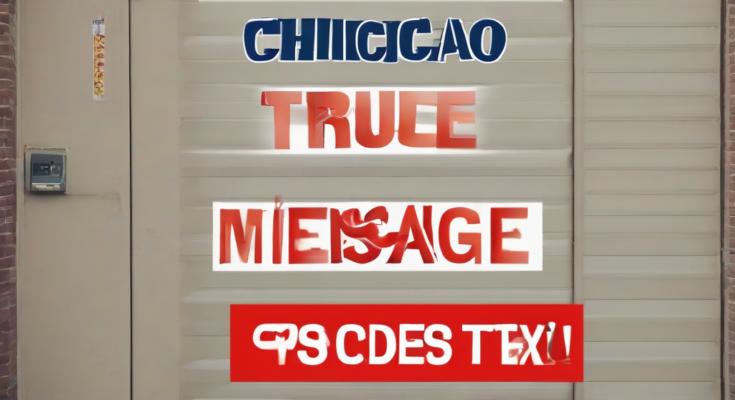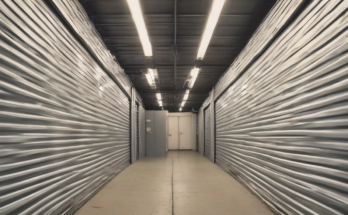Unlocking Chicago’s Storage Solutions: A Comprehensive Guide to Self Storage
Chicago, a vibrant city brimming with activity, often presents space challenges for its residents and businesses. Whether you’re downsizing, renovating, relocating, or simply needing extra space for seasonal items, self storage in Chicago offers a practical and flexible solution. This comprehensive guide delves into the intricacies of the Chicago self storage market, empowering you to make informed decisions and find the perfect storage unit to suit your needs.
Understanding Your Storage Needs
Before embarking on your search, it’s crucial to assess your specific storage requirements. Consider the following factors:
- Volume of items: Accurately estimate the amount of space you need. Measure your belongings and consider using online storage calculators for assistance.
- Type of items: Are you storing furniture, documents, seasonal clothing, or valuable items? This influences your choice of unit size and features (e.g., climate control).
- Duration of storage: Will you need the unit for a short term (a few months) or long term (years)? This impacts pricing and potential contract terms.
- Accessibility: How often will you need to access your belongings? Consider proximity to your home or business and the facility’s access hours.
- Budget: Self storage costs vary depending on location, unit size, and features. Establish a realistic budget before you start your search.
- Security: Prioritize facilities with robust security measures such as video surveillance, secure access gates, and well-lit premises.
Types of Self Storage Units in Chicago
Chicago’s self storage landscape offers a variety of unit types to cater to diverse needs:
- Indoor Units: Offer protection from the elements and are typically climate-controlled, ideal for sensitive items like furniture and electronics.
- Outdoor Units: More affordable than indoor units but exposed to weather conditions. Suitable for storing less sensitive items like tools or garden equipment.
- Climate-Controlled Units: Maintain a consistent temperature and humidity level, protecting items susceptible to damage from extreme temperatures or moisture.
- Drive-Up Units: Allow for easy access with your vehicle, making loading and unloading more convenient.
- Mini Storage Units: Small units ideal for storing a few boxes or smaller items.
- Large Storage Units: Suitable for storing the contents of a large home or business.
Finding the Right Self Storage Facility in Chicago
Chicago’s diverse neighborhoods offer numerous self storage facilities. Consider these factors when selecting a facility:
- Location: Choose a facility conveniently located near your home or business for easy access.
- Reputation: Read online reviews and check the facility’s reputation for security, cleanliness, and customer service.
- Amenities: Consider amenities such as climate control, drive-up access, moving supplies, and packing materials.
- Pricing: Compare prices from multiple facilities and consider the overall value provided.
- Security Features: Look for facilities with 24/7 surveillance, secure access gates, and well-lit premises.
- Insurance Options: Inquire about insurance options to protect your belongings against damage or theft.
Navigating the Chicago Self Storage Market: Tips and Considerations
The Chicago self storage market can be competitive. Here are some tips to help you navigate it effectively:
- Book in advance: Especially during peak seasons, booking your unit in advance is crucial to secure the space you need.
- Read the contract carefully: Before signing any contract, understand all terms and conditions, including payment schedules, late fees, and cancellation policies.
- Compare prices: Don’t settle for the first facility you find. Compare prices and services from multiple facilities to find the best deal.
- Take advantage of promotions: Many self storage facilities offer promotions and discounts, especially for new customers or longer-term rentals.
- Protect your belongings: Use appropriate packing materials to protect your items from damage during transport and storage. Consider purchasing renter’s insurance.
- Organize your belongings: Before moving your items, organize and label your boxes for easy retrieval later.
- Inventory your belongings: Create a detailed inventory list of your stored items with photos, dates, and descriptions for insurance purposes.
Specific Neighborhood Considerations
Self storage costs and availability can vary significantly across Chicago’s diverse neighborhoods. Factors such as proximity to the city center, transportation accessibility, and property values influence pricing. Researching specific neighborhoods will provide a clearer understanding of local market dynamics.
- Downtown Chicago: Expect higher prices due to high demand and limited space. Prioritize convenience and security given the central location.
- North Side: Offers a mix of price points depending on the specific neighborhood. Consider factors like proximity to public transportation and local amenities.
- South Side: May present more affordable options compared to downtown or the North Side, but thoroughly investigate security measures and accessibility.
- West Side: Similar to the South Side, this area offers a range of options with varying price points. Pay close attention to reviews and facility reputations.
Beyond Basic Storage: Specialized Storage Solutions
Chicago’s self storage landscape caters to specialized needs beyond standard unit rentals:
- Wine Storage: Facilities offering climate-controlled storage specifically designed for wine preservation. Temperature and humidity levels are carefully regulated to protect the quality and value of your wine collection.
- Record Storage: For those with valuable vinyl or other media collections, specialized storage that controls temperature and humidity is critical to preserving their condition. Facilities may offer additional security features for valuable items.
- Document Storage: Secure storage for important documents, often including features like fire protection and controlled access. Compliance with data security standards is vital for sensitive materials.
- Business Storage: Larger units and specialized solutions for businesses, potentially including loading docks or office space. Features such as high security and reliable access are essential for business operations.
Legal and Insurance Considerations
Before signing a lease, understand your legal rights and responsibilities. Consider these points:
- Lease Agreement: Carefully read and understand the terms and conditions outlined in the lease agreement, paying attention to payment schedules, late fees, and early termination clauses.
- Liability: Familiarize yourself with the storage facility’s liability in case of damage or theft. Ensure your personal belongings are adequately insured.
- Insurance: Consider purchasing renter’s insurance or a specific policy for your stored items. This will provide financial protection in case of unforeseen events such as fire, theft, or water damage.
- Access Policies: Clarify the facility’s access policies, including operating hours, procedures for accessing your unit, and any restrictions or limitations.
Moving and Packing Tips for Self Storage in Chicago
Efficient packing and moving practices are vital for a smooth self storage experience:
- Packing Materials: Invest in sturdy boxes, packing tape, bubble wrap, and other protective materials to prevent damage to your belongings.
- Labeling: Clearly label all boxes with their contents and room designation for easy identification upon retrieval.
- Inventory: Create a detailed inventory list of your stored items with photos and descriptions for insurance purposes.
- Protect Sensitive Items: Take extra precautions to protect fragile or valuable items using appropriate packaging and storage techniques.
- Moving Assistance: Consider hiring professional movers if you have a large amount of items or require assistance with heavy lifting.


